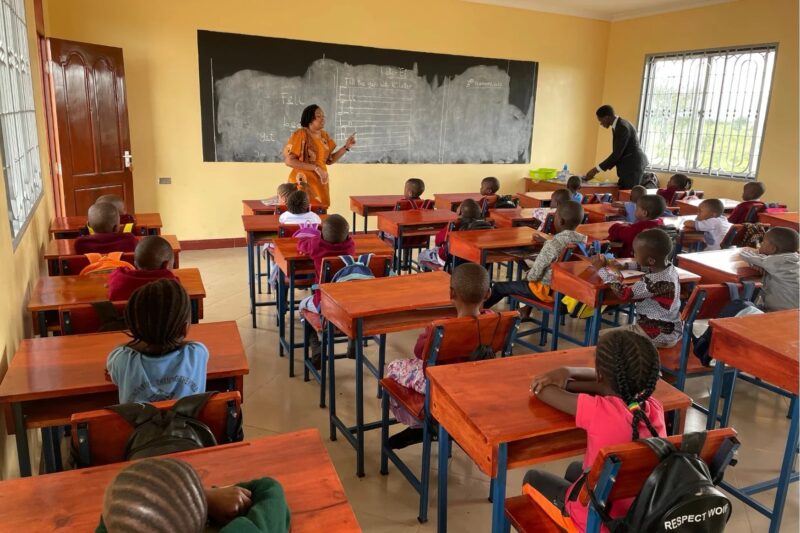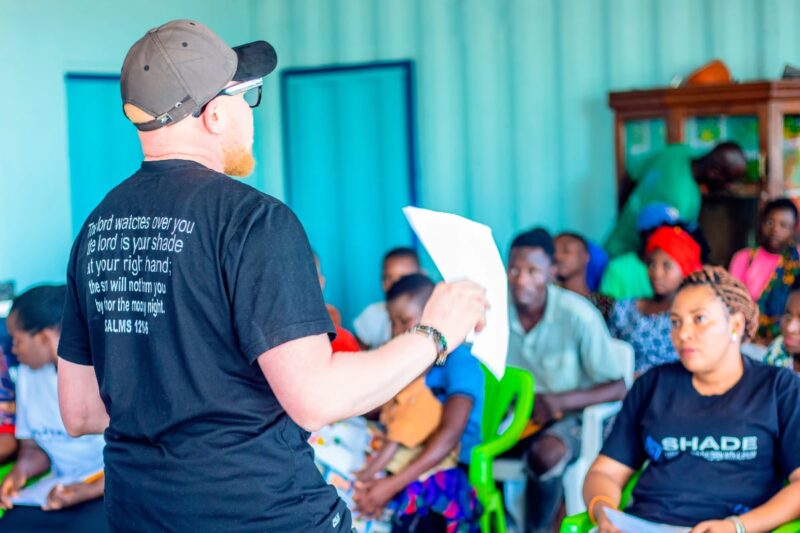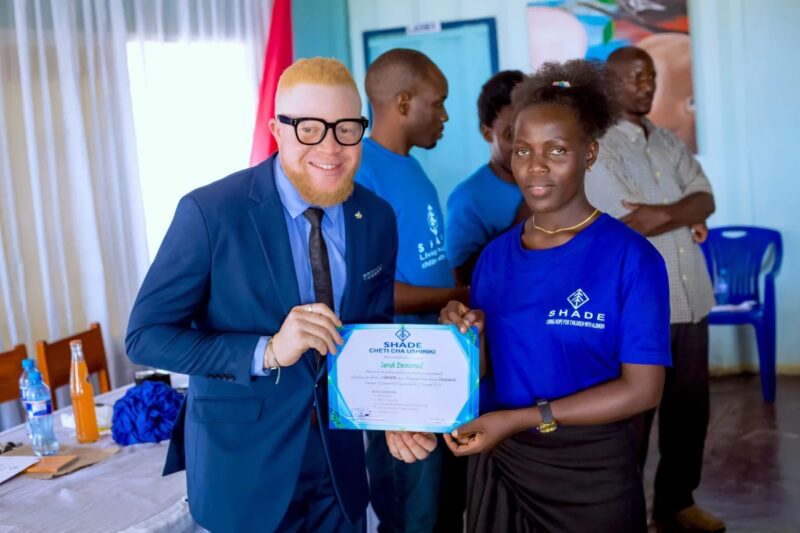What is Albinism?
Albinism is a genetically inherited condition resulting in reduced pigment in the skin, eyes, and hair.
Approximately one in every 1,400 children born in Tanzania is born with albinism. This is the highest rate in all of Africa and a significantly higher rate than in Europe and North America, where approximately one in 20,000 people has albinism.
The Problem
If you are born with albinism in Tanzania, there is a great likelihood that you will face violence and discrimination. Dangerous beliefs in traditional religion lead to the brutal maiming and murder of people with albinism for their body parts, which are then used in rituals thought to bring luck and wealth. Since killings began to increase in 2006, many children have been moved to government-run protectorate centers throughout the country.
People with albinism are often considered outcasts in society. In many cases, mothers are advised to kill their babies with albinism. Often parents do not enroll them in school. Those who do attend school face the challenge of low vision and teachers who are usually ill-equipped to accommodate them. They are often bullied by their peers.
There are also health risks for people living with albinism. With little or no skin pigmentation, they are left vulnerable to the sun and face high rates of skin cancer.



